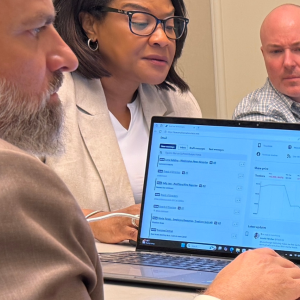Menu
When we talk about reputation, we’re really talking about trust. It’s how the people who matter most to your organisation, your audiences, your partners, your stakeholders perceive you. Their trust gives you what’s often called your social licence to operate. Without it, your ability to function, influence, and deliver on your mission can quickly unravel.
Reputation risk is the risk of losing that trust, not necessarily because of something you did wrong, but often because of how something you did (or didn’t do) is perceived. That’s a key point: reputation risk is perception-driven, not fact-driven.
That’s what makes it different from other types of risk. For example:
But reputation risk? It can stem from any of those, depending on how stakeholders perceive your response. That’s why reputation often feels intangible, but its consequences are very real.
Think donor funding cuts, restricted access or support from governments, damaged partnerships, or talent loss. All of these can erode your ability to operate, grow, and make an impact.
Because reputation risk is so closely tied to perception, crisis management is crucial. When things go wrong, whether it’s a brewing issue or a sudden incident, how you respond matters deeply.
It’s not just about having the right message. It’s about doing the right thing, and then saying the right thing. You can’t talk your way out of a crisis, credibility starts with action. You need to act with integrity first, to earn the right to speak with authority and empathy.
Handled well, a crisis doesn’t have to spell disaster. In fact, it can be an opportunity. A chance to show leadership, reinforce your values, and demonstrate what your organisation stands for. Think of it as building credit in the reputation bank.

Let’s break down some commonly used terms:
First, look at your existing risks, especially those logged in your risk register, through a reputation lens. Think: If this risk materialises, how might it be perceived? Could it damage trust?
Next, make sure you have systems in place to spot and monitor issues early, before they escalate into full-blown crises. And, critically, you need a robust crisis management plan ready to go, so you can respond fast and effectively when the unexpected happens.
Bottom line? Reputation isn’t just something to protect, it’s something to actively manage and strengthen. With the right approach, even the toughest moments can become opportunities to build lasting trust.
Read more from Social Simulator: